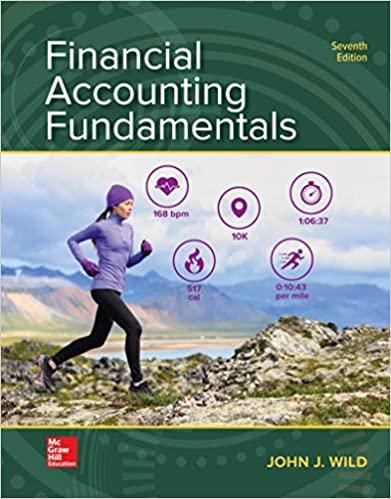Question
You are the audit senior assigned to the review engagement of a retirement home, Empowered Living Residence Inc, owned and operated by Alex and Meghan
You are the audit senior assigned to the review engagement of a retirement home, Empowered Living Residence Inc, owned and operated by Alex and Meghan Gupta. After spending a long and successful career in the hospitality business, Alex and Meghan decided to apply what they learned to develop a quality senior living experience. In addition to their life savings, the Guptas obtained financing from family members, a mortgage and operating loan from Midas Bank.
The residence, which has 45 suites, is located in a quiet residential community in Southern Ontario. The Gupta family, along with dedicated staff, offer a friendly home environment. Seniors are able to enjoy an independent lifestyle with comfortable accommodations, personal care and other supportive services. The seniors pay a monthly fee (based upon the size and location of the suite) that ranges from $2650 to $3750. The fee includes accommodations, meals, personal care, and social activities. In addition to the monthly fee, Empowered Living provides several optional services, such as enhanced professional care, foot care and physiotherapy, and a beauty/barber salon. These services are charged on a fee for service basis.
Over the years, Empowered Living has developed an excellent reputation, occupancy is at 100% and there is long waiting list. Much of this success has been attributed to Alex and Meghans active involvement and commitment to personalized service and care. Seniors, who generally start their stay with Empowered Living in their late 70s or early 80s, are often at the point in their lives where they no longer want to maintain a home. The proceeds from the sale of their home, along with their pension, fund their rental fees.
Your firm, Bermundsy & Eden LLP, has performed a review engagement for Empowered Living Inc, since its inception in 2000. This is the first time you have been assigned to a review engagement and you are excited about actually putting into practice what you have learned in your Introductory Audit Course. You are also working with a brand new recruit, Francene. You and Francene have just finished the initial planning meeting with the Alex and Meghan and are discussing the changes that occurred during the 2020 fiscal year the year-end is March 31st (Your meeting notes are summarized in the table below Part B). At the start of the meeting Francene admits she did not know much about Review Engagements since her Introductory Audit Course did not cover the topic and she wonders if you can help her understand a few matters.
Part A Address Francenes questions below.
Francene asks why Empowered Living is a review engagement rather than an audit?
Francene tells you she is confused as to why there is no discussion of performance materiality in the planning memorandum and wonders why this is appropriate and how is the review team supposed to evaluate misstatements?
Part B During your meeting, you became aware of the following events/changes that occurred during the year.
Meeting Notes (With Owners, Alex and Meghan)
Changes During the 2020 Fiscal Year
- Significant renovations were made to the dining/kitchen area and spa/gym during the year. Much of the older equipment in those areas was replaced.
- A new system for tracking optional services had been installed but there have been problems. Alex stated that he is concerned that there may be services provided that have not been billed.
- A family of a former resident is suing for abusive treatment they claim their mother received from one of the personal aides. Alex and Meghan intend to vigorously defend this. They claim no abuse occurred rather the resident sustained her injuries through a fall.
For each issue:
1. Explain the nature of the possible misstatement (be specific, ie: the overall financial statement level or the specific account and the relevant assertion)
2. Provide a further inquiry and/or analytical procedure that you could perform to confirm or dispel the potential misstatement.
3. Provide any additional procedures (in addition to the inquiry and/or analytical procedures) that you consider necessary to address the possible misstatement. If you do not consider any additional procedures are necessary, state N/A (Not Applicable).
Step by Step Solution
There are 3 Steps involved in it
Step: 1

Get Instant Access to Expert-Tailored Solutions
See step-by-step solutions with expert insights and AI powered tools for academic success
Step: 2

Step: 3

Ace Your Homework with AI
Get the answers you need in no time with our AI-driven, step-by-step assistance
Get Started


